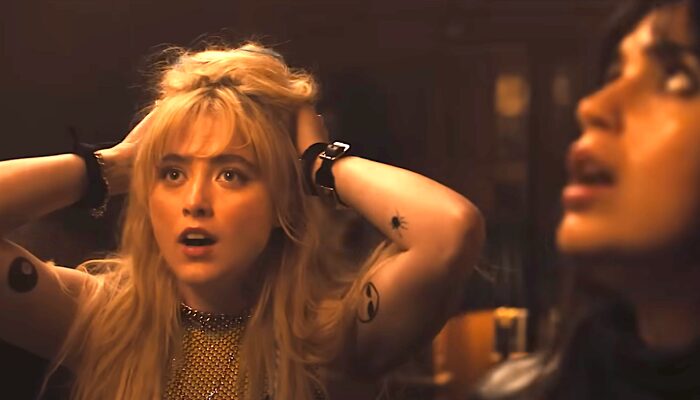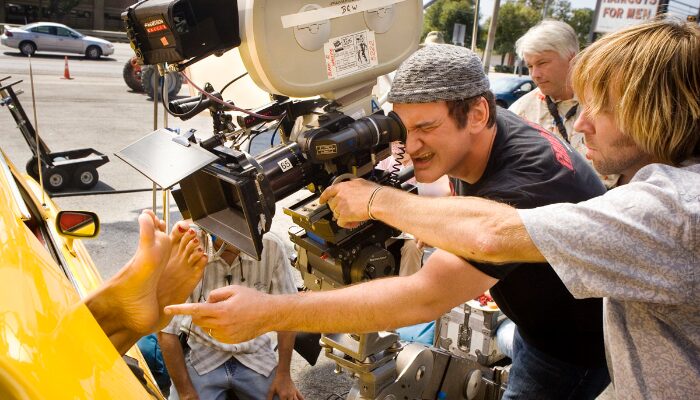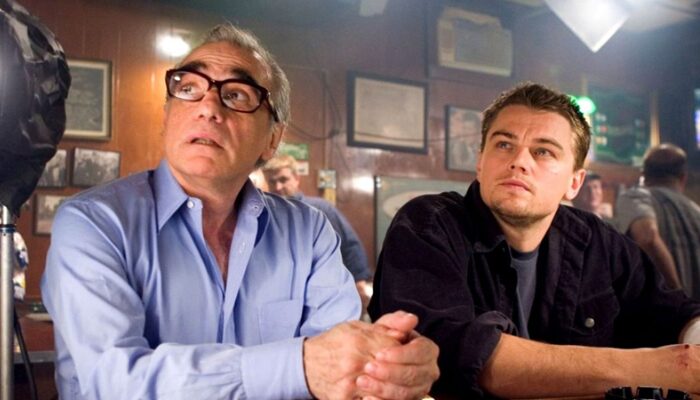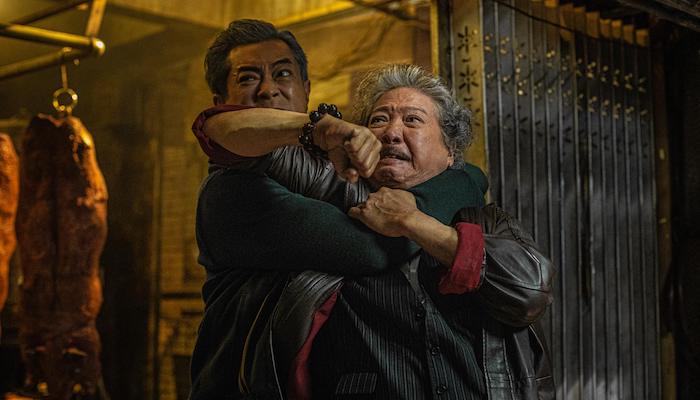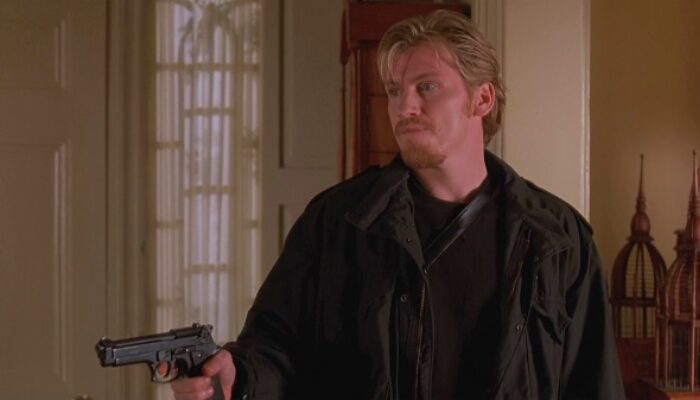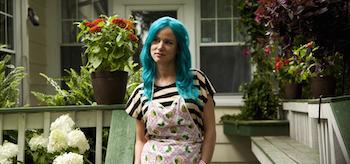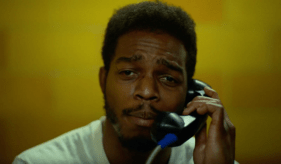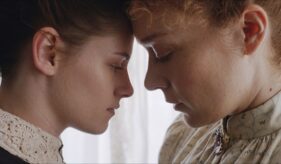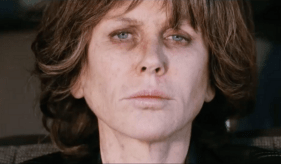Film Review: KELLY & CAL: Predictability & A Unlikely Friendship [LFF 2014]
Kelly and Cal (2014) Film Review from the 58th Annual BFI London Film Festival, a movie directed by Jen McGowan, starring Juliette Lewis, Jonny Weston, Josh Hopkins, Cybill Shepherd, Lucy Owen, Ken Marks, and Margaret Colin.
Kelly & Cal tells the story of an unlikely friendship borne out of necessity. The main characters Kelly (Juliette Lewis) and Cal (Jonny Weston) are neighbors who are both dealing with change. Things have happened to them recently that have made them question life in general, and whom they can trust.
Kelly is a new mother who’s already somewhat estranged from her child. The real root of the problem, if there is one, is never dealt with within the story. It could be postpartum depression or, in fact, a number of other things. Add to that, the rebellious nature of a recently paralyzed young adult (Cal), and you have what seems like an original idea that could work very well with the right cast.
The fact that the movie slips into the realm of predictability is down to the story and not the cast. The first act centres on Kelly and her new life in a new neighbourhood. The first few minutes show the audience exactly what Kelly has to deal with and, evidently, what her life has become: A baby who won’t stop crying, a husband who’s clueless- yet, surprisingly, very good with the baby-, and in-laws who don’t seem to know what boundaries are?
It’s on one of these bad baby days- when the kid just won’t stop crying- that Kelly decides to sneak outside for a quick smoke and, maybe, a moment of relief from what her life has become. Lost deep in her inner thoughts she meets Cal for the first time. And what ensues is probably the highlight of the first ten minutes of the movie. Cal, like any over sexed and under-utilized teenager makes a charm-less pass on Kelly, and the resulting few minutes are priceless. To be honest, I’m not sure what Cal was expecting by telling someone they had ‘nice tits’, but his confidence was admirable. After being quickly, yet, rudely shut down by Kelly, Cal rolls away and tells her to close her blinds next time, it is at this point we learn that the callous, confident teenager is actually paralyzed.
Comedic moments weren’t hard to come by but often felt forced, Kelly’s interaction with fellow young mothers at the park, in the next scene, was a prime example of this. It wasn’t an effective use of dead pan humor, which I believe is probably Juliette Lewis’s best asset.
As the story progresses it becomes less and less about Kelly and her family life, and more about her desire to find some sort of fulfillment in her life. That’s her entire reason for be-friending Cal. She doesn’t see him as a pet project, in fact, she appreciates-maybe, even loves- the attention she gets from him.
Cal, on the other hand, enjoys the friendship he’s developed with Kelly. Though he mistakes Kelly’s attention for affection, his character development is a major plus point in the film. We see Cal go from an angry young man to a somewhat calmer individual who’s willing to forgo the sympathy he believes the world owes him. Cal’s new friendship allows him the chance to develop a new outlook on life. He slowly crawls out from beneath the hole of depression he’s dug himself into. He begins to see the world in a new light, and realizes that even though circumstances have changed what he thought his life would be – his inability to play guitar anymore – he can still do something meaningful, such as making art.
Perhaps the best part of the film was Kelly’s immersion into her punk rock roots. In an earlier scene, Kelly picks up Cal’s guitar and, between strums of the bass string, talks about her rebellious past and how she met her husband (the corporate stooge). Soon after that, Kelly goes home and has a look through a box filled with her past, old cassettes, pictures, memories of days past and almost forgotten. The punkish blue hair was a fantastic touch and truly feels the most authentic part of the film. The hair signifies her rebirth, her attempt at re-claiming her life.
Though, the narrative seems to drop down a few levels in the second half of the film. The story becomes painfully predictable and the last quarter of the film only has bits and pieces of anything mildly fresh. The script may have needed more time in development as some of the character seem to be under-developed. Though, that isn’t the case with everyone involved.
The introduction of the brilliant Cybill Shepherd as Kelly’s mother-in-law adds a further layer of comedic charm to the film. She plays the part of the concerned yet understanding Grand-parent/parent perfectly. Her relationship with Kelly is complicated to say the least, yet she always tries. Cooking, taking care of the baby, placating her daughter-in-law, and then finding a makeover artist to help ‘fix’ Kelly up. Shepherd made the character feel genuine; she had the right look and presence to play that part. She portrayed a character with the perfect balance the film needed.
That is also, in many ways, a criticism of some of the other cast. The husband, played by Josh Hopkins, never takes off as an individual. Though, I suppose that has more to do with how he was written. He lacks any sort of depth; in the beginning he seems detached and towards the second half of the film becomes a caring and worried husband. He’s essentially whatever the story needs him to be. There is no character development to his character; the changes seem to happen almost instantly. It lacks a sense of reality.
Similarly, Kelly’s sister-in-law, played by Lucy Owen, is basically there for the sake of having extra bodies in the room. She adds absolutely nothing to the film. She only has a handful of lines, the most memorable one being when she asks Kelly, “Why aren’t you happy?”
Kelly & Cal is a story of an unusual friendship. It is a movie that, at its best, shows the importance companionship can have to lonely people. At its worst, the film is very predictable and probably best saved for watching on TV a few years down the line rather than paying for in the Cinema.
Rating: 7/10
Related Articles
FilmBook's Newsletter
Subscribe to FilmBook’s Daily Newsletter for the latest news!

